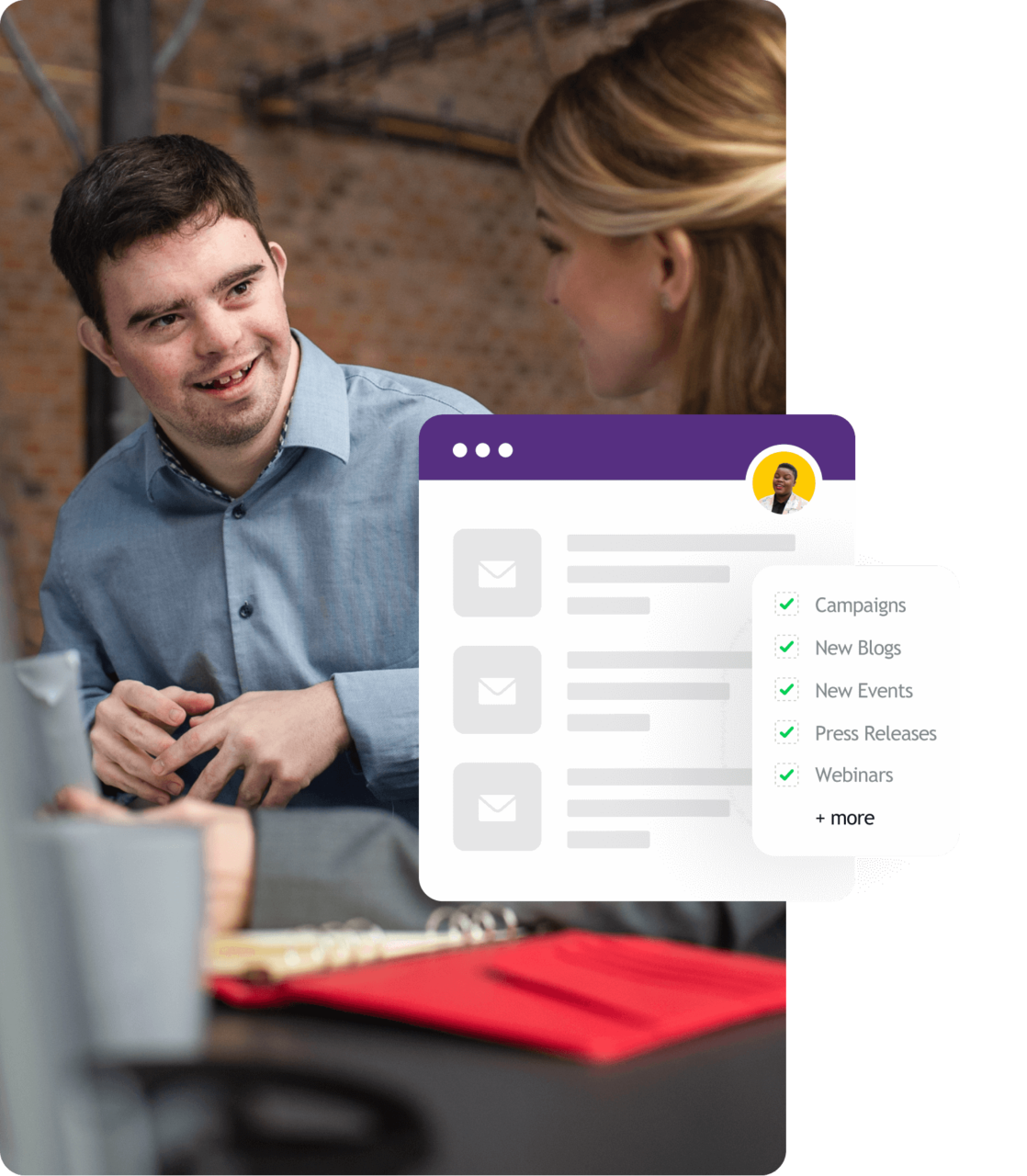
Rob Hudson is a Frank Trippett Advocacy and Outreach Fellow, and Community Outreach Associate for The Arc of Northern Virginia. Rob’s advocacy on behalf of his daughter, Schuyler, who has a rare disorder called polymicrogyria, has guided his personal philosophy for the past twenty years.
Launch Prep for School
Popular media sells us a narrative suggesting that the words “Back to School” inspire a feeling of joy and relief in the hearts of harried parents who have been trying to keep their kids occupied in summertime activities that don’t involve shoplifting or burning down the house. For families with kids with disabilities, it’s often much more complicated than that.
My daughter has been out of school for a few years now, long enough that the mention of the letters “IEP” no longer makes my eye twitch, but I certainly have memories. Recently I was speaking to another parent of a young adult with an intellectual disability, and as we swapped stories of school days gone by, it felt like what I imagine war veterans experience when they meet up at reunions and tell the tales that no one who hasn’t experienced combat truly understands. We’ve seen some stuff.
I was reminded on my ride into work today that local schools are starting up this week, and I thought it might be a good time to revisit those memories of public school preparation (here comes the twitch) and share a few helpful things that I remember.
For a long time, I feared that the level of involvement my wife and I insisted on with our daughter’s teachers and therapists was marking us somehow as difficult. We were the “red flag” parents, I thought at the time. That fear didn’t change our behavior much; as special needs parents, I think we all learn to step up regardless of the eye rolls. But it was something we were aware of, at least. No one wants to be That Parent.
Years later, I worked as an instructional assistant for an elementary special education class, and I found to my surprise that the only real red flag parents were the ones who were either unreasonably demanding or mostly invisible. As it turns out, most teachers crave as much participation from parents as they can get. The best teachers understand how a collaborative relationship with parents can make all the difference. Engaged parents become team members who can extend the strategies and lessons of the school day into their home life, and can provide valuable intel on the student’s fuller life. I wish I’d understood that years before.
So if you’re sending your child with a disability off to school, I have a few suggestions that could make things go smoother for everyone involved.
Establish a working relationship with your child’s teachers and therapists early. Find out how they’d prefer to communicate (Email? Meetings? A traveling folder?) and then get that line going. It gives you an opportunity to share things that won’t be a part of your child’s file. Is he a morning person, and do his meds affect his window for learning and/or behavior? Does he have anxiety about starting school, and how is that affected by his disability? Are there areas he’s recently struggled with, and perhaps more importantly, what are some recent successes the teacher can build on?
A good teacher will have questions for you, because they’ll understand that even more than for their neurotypical students, their kids with disabilities present challenges and a need for strategies in ways that are entirely unique to each individual. They’ll want to complete a fuller portrait of your kid from the very beginning.
Prepare your child. I know, easier said than done, right? Only you know what level of preparation and engagement is appropriate for your child, but some things may be available to you.
- If possible, find out what their hopes for the school year might be, and also their fears. Visit their campus with them if you can, and walk the route between their classes if you have their schedule.
- Familiarize them with their transportation and lunch plans, as these are two areas where they are likely to feel adrift from their routine.
- Involve them in purchasing school supplies so they can feel like their style and choices are represented.
- See if they have questions for their teachers and therapists.
- And whatever you do, help them find their locker and practice with their lock. That locker may look empty, but for many students, it is chock full of anxiety.
As our kids grow older, I truly believe there are two things they’ll benefit from the most as you advocate for them in school.
- Your involvement should be consistent and unwavering. We’ve already discussed how this benefits a positive working parent/teacher relationship. But even in a worst case scenario where you find yourself fighting a lot of losing battles, never underestimate the value of letting your kids see you fight those fights. They’ll learn soon enough that the world can be disappointing when it comes to their inclusion needs, but the more important lesson might just be that they can always count on you to be there at their side, regardless of the outcome.
- Teach them to advocate for themselves. In our school district, students from the age of 13 on were actually required to attend their IEP meeting. I agreed with this policy, much more than my daughter did. At first she was deeply uninterested in these conversations she mostly didn’t comprehend. But as she got older, she understood more, and she appreciated the stakes too. By the time she was in high school, she was actively participating and giving her honest input about her school life, even in front of the teachers with whom she had beef. In some ways, that was the most crucial lesson for her to learn in school, and one that she hopefully can call upon as a young adult.
I hope these thoughts are helpful as you move forward with what I hope is a very successful school experience for your family. (Good luck with that IEP eye twitch.)



